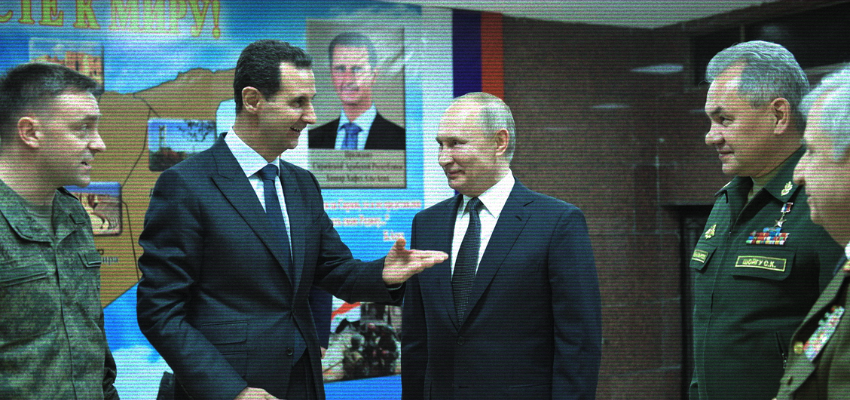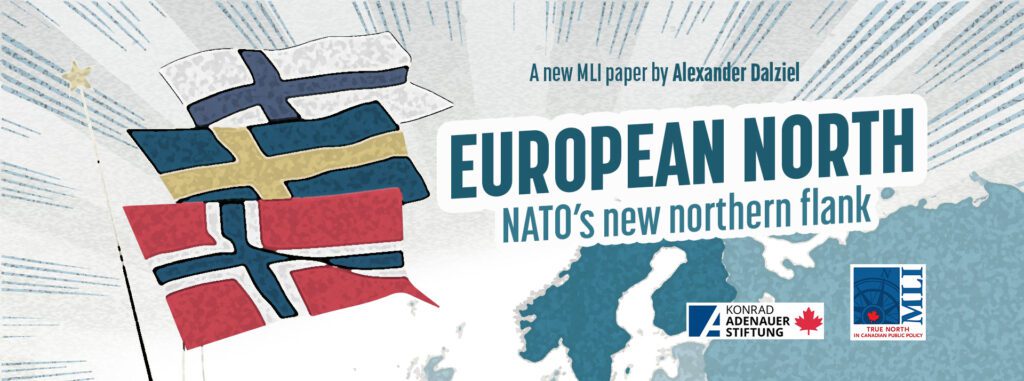This article originally appeared in The Hub.
By Richard Shimooka, Alexander Lanoszka, and Balkan Devlen, December 19, 2024
The dramatic collapse of the Bashar al-Assad regime at the hands of Hay’at Tahrir al-Sham (HTS) and its allied groups over the past few weeks has widespread implications for the Middle East and beyond. Nowhere is this truer than when it comes to Russian power, which is in serious decline.
The Assad regime’s legitimacy and power have been diminished over the past fifteen years of war. The ethnic polity upon which it maintained its power, heavily based on a core support of Alawites in the northwest of the country, was no longer viable. Without that legitimacy, Assad was wholly dependent on foreign support to keep himself in power.
Arguably this has been true ever since 2015, when the regime was rescued by a military intervention from the Russian Federation, one that included a major airpower campaign against rebel strongholds and the deployment of ground forces to the country alongside Iranian and Hezbollah forces.
Although ostensibly aimed at pushing back the brutal Islamic State, the combined Russian and Assad-loyalist forces focused much of their attention on more moderate regime opponents. They waged a savage campaign, which reportedly included the deliberate bombing of health-care facilities and personnel as well as supporting Assad’s indiscriminate use of lethal violence in urban areas to cow civilians to the government’s will.
Although Moscow succeeded in stabilizing the government and allowing it to push their opponents back, the foundations of the Assad regime saw little change. It remained a brutally repressive and depraved regime, willing to use chemical weapons on its own people.
There are various aspects to the surprisingly swift collapse of Assad’s regime that are worth noting. The most glaring of which is how Israel’s post-October 7th military campaigns have reshaped the balance of power in the region by diminishing Iranian power.
The most significant aspect of the Syria story, however, is obscured by the immediate images of Assad’s fall and joyous Syrians celebrating in the streets. For Canada and its allies, the most pressing concern is what this development says about Russia’s declining strength and ability to project its will on the international stage. Syria under Assad was one of Moscow’s closest allies since the 1960s. Moscow had provided the state with a lavish amount of military and financial aid, allowing it and its client to play an outsized influence in the region. That arrangement has now all but come to an end.
Russian influence within the borders of the former Soviet Union and across its near periphery is in a state of severe atrophy. Its full-scale invasion of Ukraine has catalyzed this turn of events. Having lost hundreds of thousands of soldiers in combat that is at times reminiscent of First World War trench warfare, and spent hundreds of billions of dollars in treasure, Russia has very little resources or focus to spend on foreign concerns.
What was envisioned as a three-day special military operation to overthrow Ukraine’s democratically elected government and shore up its regional leadership has turned into an unmitigated disaster for the Kremlin, one that has clearly hastened its decline internationally, even if in recent months Russia has succeeded in taking territory from Ukraine in the Donbas. In granular terms, it has been unable to send sufficient resources to foreign clients, weakening them so much that their rivals can further undermine them.
Russia was caught unprepared by the Syrian rebel advance towards Damascus and provided minimal support to its close ally. Whether they could have blunted the lightning advance is an open question. Nevertheless, withholding much of Russia’s military power all but ensured the Assad regime’s end. So quick and unexpected was Syria’s collapse that reportedly garrisons of Russian troops were stranded deep within the countryside without support.
At the time of this publication, its main air and naval base on the Mediterranean coast remains in Russian hands, but there are conflicting reports on whether a withdrawal is in the offing. To be sure, even if an accommodation can be reached this is at best a fig leaf for its total political and military collapse in the region.
Although a deal may allow the Russian military some ability to retain its hard-power influence in the Mediterranean and Africa, without the support of a pliant host regime, it is of limited value. At any moment Damascus may rescind Russia’s ability to maintain the military facilities in its country, something it has already intimated.
One of the more persistent concerns among some international commentariat, particularly among a number of Russian apologists, is that such a collapse would lead to major instability in the country’s environs. Yet that requires one to willfully ignore the Kremlin’s role in encouraging conflicts to weaken opponents and maintain its influence in the region.
What has emerged into this vacuum is a number of regional powers who have tried to step in, with varying degrees of success so far. Turkey’s regional influence has risen dramatically, especially in Syria and Azerbaijan, as has China’s and Saudi Arabia’s. In Syria, some level of instability persists, as fighting continues between the Turkish-backed groups and Kurdish groups in the northeast of the country.
However, this fighting is unlikely to spread beyond the current region given the Kurds’ desire for relative autonomy and security over territory inhabited by their people. In some cases, like the conflict between Armenia and Azerbaijan, the removal of Russian influence has resulted in renewed violent conflict, which can arguably lead to a stabler political equilibrium than the one that previously existed, albeit with a significant humanitarian cost.
Present-day Georgia is likely the only bright spot for Vladimir Putin—if one could even call it that. While the recent parliamentary election brought in a pro-Kremlin government, its near-immediate repression of democratic opponents has done little to win new support for the Kremlin from other countries and serves as another cautionary tale about the risks of allowing Russian influence to flourish.
What is most concerning is that given their complete lack of traditional instruments of national power—military, diplomatic, and financial resources—the Kremlin will be increasingly forced to employ asymmetrical means to maintain its even limited presence abroad.
As the late American ambassador James Dobbins once penned, “Russia is a rogue, not a peer; compared to China which is a peer, but not a rogue.” More desperate, Putin’s Russia may do more to undermine even basic components of the international system, such as the financial markets and critical infrastructure, to achieve its aims.
This will become more apparent as the fighting in Ukraine becomes more protracted and as Moscow’s foreign policy tools cupboard empties. The recklessness of Putin’s actions risks scenarios where his miscalculation will create a major foreign policy crisis that could spiral out of control.
For Canada and its NATO allies, the situation of Russia’s declining global power is a positive one, if it can be managed effectively. It has exposed Russia’s clear weakness to its foes, which may motivate them to take advantage of the opportunity presented by the situation. It has gone from a great power with global reach to a tottering regional one, albeit with nukes.
Supporting Ukraine has helped produce the overall decline of Russian power, but we must remain vigilant for any unconventional efforts by a Kremlin more willing than ever before to destabilize its opponents. Responding to these efforts quickly will be essential.
Above all, continued, and even expanded, support of Kyiv is absolutely vital to ensure this process continues. If Canada and its like-minded allies and colleagues can thread this needle, it can diminish one of the more persistent external threats to its security and well-being for decades to come.
Richard Shimooka is a Hub contributing writer and a senior fellow at the Macdonald-Laurier Institute who writes on defence policy.
Alexander Lanoszka is senior fellow at the Macdonald-Laurier Institute and associate professor of international relations in the Department of Political Science at the University of Waterloo.
Balkan Devlen is Senior Fellow and the Director of the Transatlantic Program at the Macdonald-Laurier Institute.







